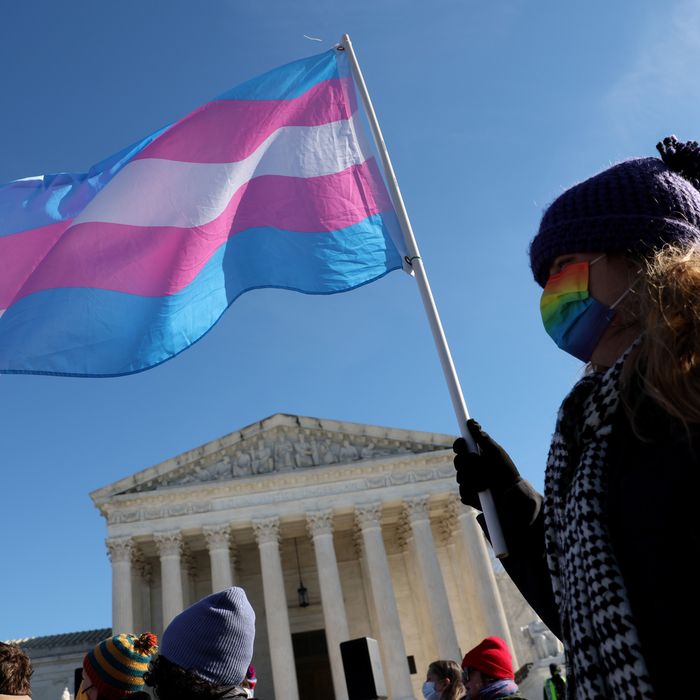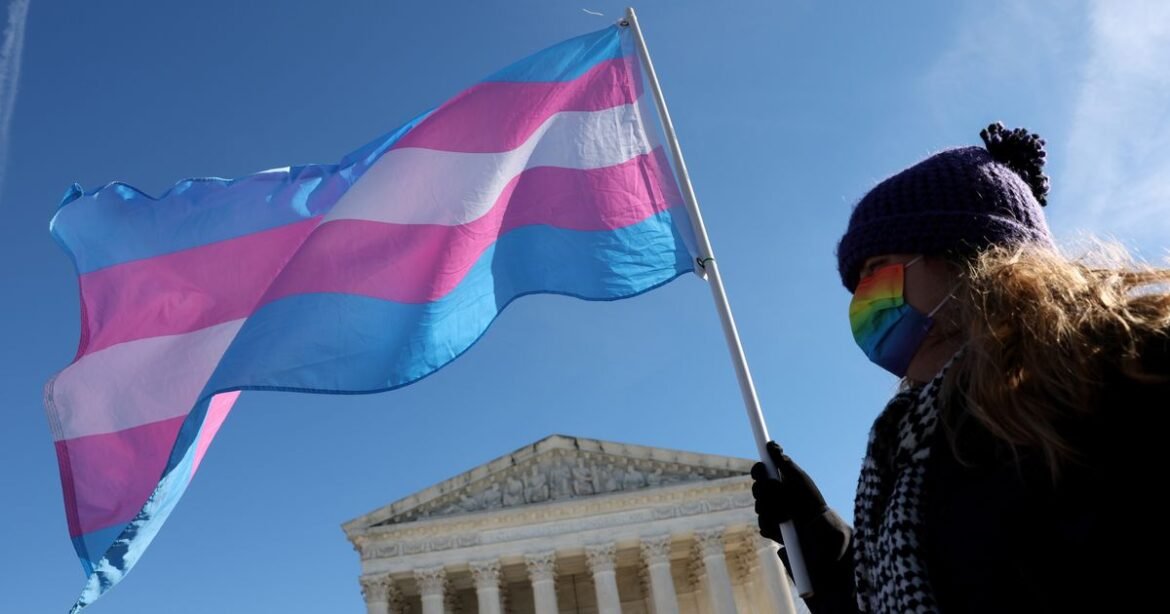
Photo: Kevin Dietsch/Getty Images
There was a clarifying moment late in Wednesday’s two-and-a-half-hour-long oral argument in United States v. Skrmetti, a history-making challenge to Tennessee’s ban on gender-affirming care for minors.
Justice Ketanji Brown Jackson had listened to her Republican-appointed colleagues take two different tacks in their questions: open hostility to the idea, asserted by the plaintiffs, that Tennessee’s law is unconstitutional sex discrimination (voiced by Justices Samuel Alito and Clarence Thomas) and faux humility (coming from Justice Brett Kavanaugh and Chief Justice John Roberts). In the latter approach, the justices threw up their hands, saying that sifting through the medical evidence was just so hard, the research so contested, that it required them, as Roberts put it, “to leave those determinations to the legislative bodies rather than try to determine them for ourselves.”
Jackson called out these tactics in real time, in unmistakably clear terms. She repeatedly described herself as “quite worried” and “nervous” because the same justifications that the state of Tennessee was using to ban transgender health care for minors were previously used to justify bans on interracial marriage, which the court had struck down in Loving v. Virginia — namely, that the laws couldn’t be discriminatory because everyone was equally restricted: No minor in Tennessee is able to access gender-affirming care, whether they were assigned female or male at birth, just as no one was able to marry someone of a different race in Virginia before Loving was decided in 1967.
Jackson referred to the long-standing interpretation of the equal-protection clause of the 14th Amendment as protecting against multiple forms of discrimination. If the Court were “just sort of doing what the state is encouraging here in Loving,” she said, “where you just sort of say, ‘Well, there are lots of good reasons for this policy, and who are we as the Court to say otherwise?’ I’m worried that we’re undermining the foundations of some of our bedrock equal-protection cases.”
The ACLU’s Chase Strangio, the first known transgender attorney to argue before the Supreme Court, agreed. His clients’ case hinges on whether the Tennessee law should be subject to “heightened scrutiny,” a standard that the Court has long applied to laws classifying people on the basis of sex. “If Tennessee can have an end run around heightened scrutiny by asserting at the outset that biology justifies the sex-based differential in the law,” Strangio said, “that would undermine decades of this court’s precedent.”
It could not have escaped anyone in the room that not only were Strangio’s own rights being debated — as he put it to me recently, “I’ve lived this health care. It has enabled me to stand before them at that lectern” — so, too, were Jackson’s, the first Black woman to sit on the Supreme Court, whose marriage would have been illegal before Loving was decided. The odds seemed stacked in favor of the ban — it was hard, today, to count five justices that might strike down the law — and it seemed that to many of the conservatives present, from Tennessee’s solicitor general to Alito and Thomas, stripping the equal-protection clause of its power was not some nightmare scenario. But at least they were forced to confront the real-life implications of their potential decision by the attorney before them and their own colleagues.
Other liberal justices did their part to clear the day’s obfuscations, as when Justice Elena Kagan said plainly to Tennessee’s solicitor general, J. Matthew Rice, of the law in consideration, “You might have reasons for thinking that it’s an appropriate regulation, and those reasons should be tested and respect given to them. But it’s a dodge to say that this is not based on sex, it’s based on medical purpose, when the medical purpose is utterly and entirely about sex.”
Rice responded somewhat opaquely but seemed to refer to the claim (not made in the case) that the plaintiffs had a right to gender-affirming treatment: “We think that’s a request for a substantive right to engage in nonconforming behavior. We don’t think it’s actually drawing a line based on sex.” From a legal standpoint, it seemed pulled from thin air, but it was a helpful distillation: Barring “nonconforming behavior” seemed to be what the Tennessee law was really about
Justice Amy Coney Barrett, for her part, showed astonishing ignorance when she said airily that there was no history of laws explicitly discriminating against transgender people, “and my concern about it is this, all of the other suspect classes that we’ve recognized so far do have that long de jure history of discrimination.” It fell to Strangio to give examples to the contrary, from bans on transgender people in the military to criminal bans on cross-dressing.
When Justice Sonia Sotomayor pressed Rice on whether his same reasoning could be used to support a ban on treatment for adults, he tried to dodge and say that his argument would ultimately mean that “it’s left to the democratic process, and that democracy is the best check on potentially misguided laws.”
Sotomayor responded forcefully, “When you’re one percent of the population or less, it’s very hard to see how the democratic process is going to protect you.” It was equally hard to see how the Supreme Court would, either.

